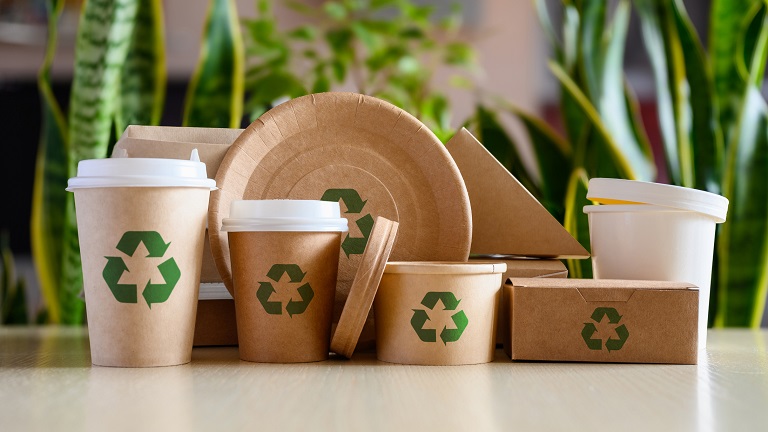
In the modern era of heightened environmental awareness, one of the most pressing concerns for consumers, businesses, and policymakers alike is the sustainability of packaging. The increasing volume of waste generated by single-use and non-recyclable packaging is exacerbating the global waste crisis, leading to detrimental consequences for our planet and its ecosystems. As the world grapples with the challenges of climate change and resource depletion, finding a delicate balance between ecology and commerce in packaging is imperative.
The Rising Tide of Plastic Waste
The proliferation of single-use plastic packaging has become emblematic of our throwaway culture, causing untold harm to the environment. The plastic waste crisis, particularly ocean plastic pollution, has raised alarm bells globally. In recent years, governments and companies have made efforts to address this issue through initiatives such as plastic bag bans and the use of recyclable plastics. However, more radical action is needed to tackle this pervasive problem.
The Challenges of Sustainability in Packaging
Creating truly sustainable packaging involves navigating a complex web of challenges. First, packaging must protect and preserve the product it contains, ensuring it reaches the consumer in optimal condition. But this must be achieved without adding unnecessary waste or pollution to the environment. Striking this balance requires innovation, research, and collaboration between businesses, governments, and consumers.
Additionally, the global supply chain complicates sustainability efforts. The use of single-use packaging materials like plastic, cardboard, and Styrofoam may be cost-effective for businesses, but their environmental impact is considerable. As products move from manufacturer to distributor to retailer to consumer, packaging waste accumulates at each stage, leading to significant ecological consequences.

The Role of Industry Leaders and Government
Sustainable packaging requires a concerted effort from all stakeholders involved. Industry leaders play a crucial role in driving change by adopting eco-friendly packaging practices. Companies should prioritize redesigning packaging to reduce waste and embrace biodegradable, compostable, or reusable materials where feasible. Investing in research and development of innovative packaging technologies is essential for pushing the boundaries of sustainability.
Governments, on the other hand, can play a pivotal role in shaping the market by setting clear regulations and incentives. Implementing extended producer responsibility (EPR) programs, where manufacturers are responsible for the end-of-life recycling or disposal of their packaging, can encourage companies to adopt more sustainable practices. Tax breaks for eco-friendly packaging materials and levies on non-recyclable ones can also nudge businesses in the right direction.
Consumers: The Catalyst for Change
The power of consumer behavior should not be underestimated. Growing environmental awareness has led to a surge in demand for sustainable products and packaging. As consumers become more eco-conscious, they seek out companies that align with their values, driving businesses to adapt their packaging strategies to stay relevant in the market.
However, the responsibility does not solely lie with consumers. To drive real change, businesses must educate and inform their customers about sustainable packaging choices and the importance of responsible consumption.
The road to achieving sustainable packaging is fraught with challenges, but the benefits are manifold. Aside from preserving our environment, adopting eco-friendly packaging can lead to cost savings for businesses in the long run. By reducing waste and embracing circular economy principles, companies can create a positive impact on both their bottom line and the planet.
Collaboration among stakeholders is crucial. Governments must provide the framework and incentives for sustainable packaging, businesses need to innovate and implement eco-friendly solutions, and consumers must support these efforts with their choices. Only through collective action can we successfully tackle the issues surrounding sustainable packaging and ensure a greener and more prosperous future for all.
Join the Sustainable Packaging Summit: Uniting Leaders to Pave the Path Toward a Greener Future
As the world faces the urgent challenge of transitioning to sustainable packaging, a pivotal event has emerged as a beacon of hope - The Sustainable Packaging Summit by Packaging Europe. This unique event has set out on a mission to bring together leaders and thinkers from both within and outside the industry to focus on the dilemmas and barriers hindering our pathway to sustainable transformation. With a commitment to fostering dialogue and collaboration, the Summit aims to create lasting solutions that will redefine the future of packaging.
The 2023 edition of the Sustainable Packaging Summit promises to be even more influential and impactful than its predecessors. Building on the momentum of the community that has formed around the Summit, this year's event returns with a wider scope, multiple streams, and a larger number of attendees, indicating bigger ambitions and heightened dedication towards driving positive change.
Taking place in Amsterdam on 14-15 November 2023, the Sustainable Packaging Summit will serve as a pivotal gathering of key stakeholders and decision-makers. Industry leaders, policymakers, academics, innovators, and advocates will come together to engage in thought-provoking discussions and share their insights on the challenges and opportunities in the world of sustainable packaging.